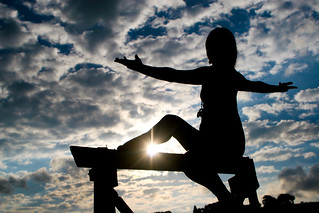15: What does “best practice” mean? #lifewidelearning16 @MrChase
— Ben Wilkoff (@bhwilkoff) January 15, 2016
Last year was a year of running and a year of writing for formal publication. In a twelve month span, I ran more than 1,100 miles. Similarly, I co-wrote prepared for publication three different texts. If I wasn’t reading/writing/editing/revising, then it felt I was running or recovering from a run (and getting ready for something to do with writing).
At the end of the year, I had publications and miles. I also dreaded sitting down to write or putting on my shoes to head out for a run. I’d forgotten what it meant to have myself as an audience and I had a right IT band threatening revolt.
The resolution for this year was simple – practice better practice.
For my life and for my teaching, that means listening to what’s necessary, what’s out of balance and making whatever moves best bring balance and meet the most pressing needs.
This has meant more yoga in my life this year. Learning and refining my goal-setting practice from last year, means I don’t hold myself to daily yoga sessions. Instead, I do what I did this afternoon and say, “Some yoga would be nice here.”
That’s best practice – knowing what’s needed in the moment and adjusting to meet those needs.
I haven’t headed out for a run yet in 2016. I’m listening to that IT band and trusting it will tell me when we’re ready.
Writing is getting a similar treatment. These blog posts back and forth with you come from daily questions, and I listen to my brain before I sit down to write. If it’s still full from the day or worn out, then I allow myself to write today’s post tomorrow (or the day after that). The standard is writing, the practice is knowing when I have something to say.
That’s best practice – knowing what’s needed in the moment and adjusting to meet those needs.
This past week, I was in Orlando for FETC. I was part of no fewer than 4 conference presentations over the course of two days. In each one, I paid attention to the audience who had decided what was going on in our room was more worthy of their time than what was going on in other rooms.
As such, I tried to adjust the planned presentations to offer room for questions, discussion, and exploration. Tellingly, the reaction was often silence. Conferences are still conferences, as it turns out – our worst versions of school. I worry the practice we’re utilizing in these spaces is one of subjugation of the assembled audience to the belief that whoever’s wearing the presenter’s badge will decide the needs of the room. When given the chance at self-determination of their learning, the audience doesn’t know what to do.
I most worry this is how we’re running classrooms.
This post is part of a daily conversation between Ben Wilkoff and me. Each day Ben and I post a question to each other and then respond to one another. You can follow the questions and respond via Twitter at #LifeWideLearning16.
